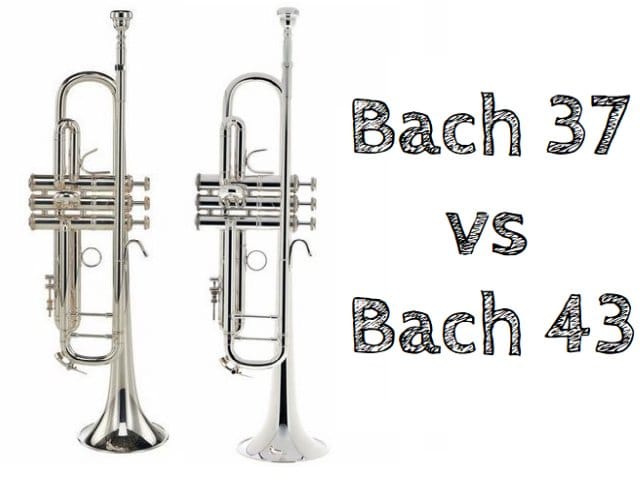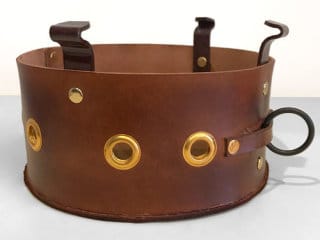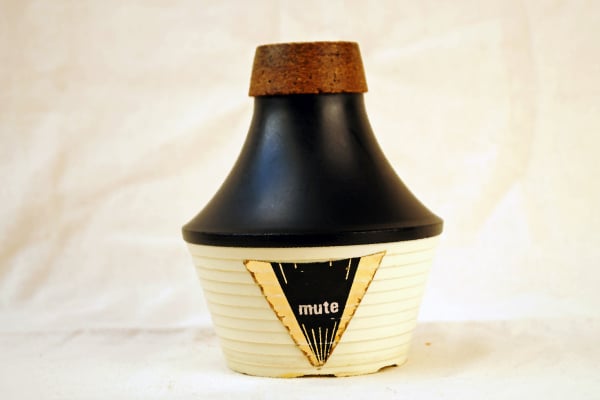Trumpets are often used in orchestras, and once you take that step, you might be surprised that what’s on the sheet is not always what you think. Here’s an introduction to concert pitch for trumpets so you know what you’re getting into.
What is concert pitch?

Concert pitch simply is a reference pitch that all musical instruments are tuned to for a concert/performance. It is also referred to as international standard pitch.
Some instruments are already tuned to concert pitch such as the piano. This means that when middle C is played on a piano, it matches the concert pitch middle C.
There are also instruments that are not in concert pitch and have to be transposed to match concert pitch. One of these non-concert pitch instruments is the trumpet.
When middle C on a non-concert pitch instrument is played, it will play a sound that differs from concert pitch middle C. The concert pitch sound produced depends on what that instrument is tuned to.
What key is concert pitch?
The most widely used tuning standard for concert pitch is 440 Hz which is the A above middle C. Instruments that are tuned to C are in concert pitch. For example, a C flute would be concert pitch and would not need to be transposed.
Looking for a teacher?
Want to get lessons at the comfort of your own home? Check out the course Learn to Play the Trumpet: Beginner to Pro Made the Easy Way* on Udemy! (See their full trumpet course line-up here*!)
What key is a trumpet in?
Most trumpets are in the key of Bb which means that they are not in concert pitch. This means that a C played on a Bb trumpet would sound like Bb on a concert pitch instrument such as the piano.
What instruments are in concert pitch?
Examples of instruments that are in concert pitch include the flute, piano, trombone, cello, violin, viola, bassoon and oboe. There are also instruments that are one octave away from the concert pitch which includes the double bass.
This means that when a middle C is played on a double bass it would sound like the C below middle C on a concert pitch instrument. The piccolo produces a middle C that is one octave higher than the concert pitch.
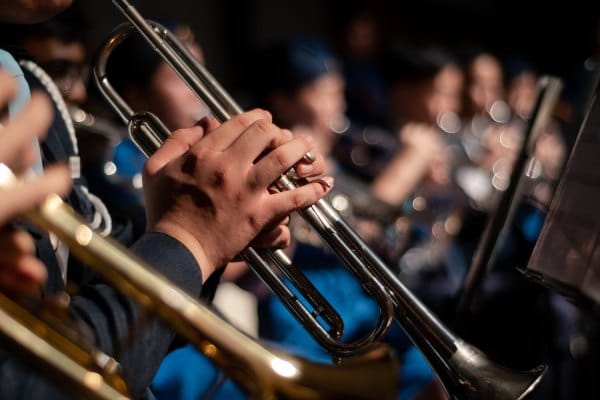
What instruments are NOT in concert pitch?
Bb instruments such as the trumpet, clarinet and tenor/soprano saxophone are not in concert pitch as they are pitched to Bb. This means that when C is played on any of these instruments it sounds like a concert pitch Bb.
Alto sax, bari sax, and contrabass sax are all Eb instruments making them not concert pitch. When they play C, it sounds like an Eb of a concert pitch instrument.
There are also instruments such as the English horn and French horn which are both pitched in F. Other instruments that are not in the key of C (or are in C but an octave away) would also all not be in concert pitch.
Can a trumpet play in any key?
Yes. No matter what key your trumpet is in, you can play all 12 notes of the chromatic scale. If you learn the right fingerings for the scales, you can play any piece in any key.
However, the fingerings are much easier on some keys compared to others. For example, the Bb key is one of the easiest keys to play and is suited for beginners. The key of D on the trumpet can be quite hard to play and is usually reserved for more experienced players.
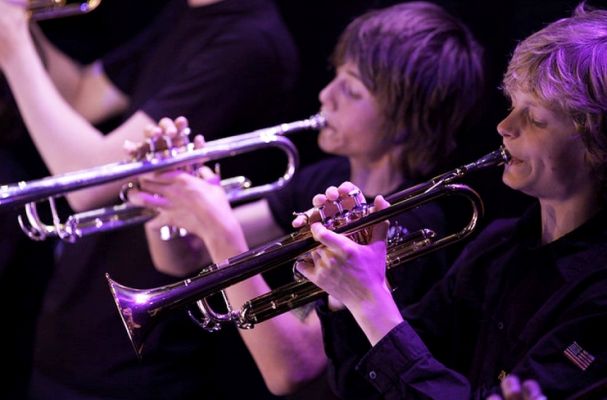
How do I know if my trumpet is Bb flat?
The best way to know if your trumpet is in the key of Bb is to play a C note into an electronic tuner. Electronic tuners are usually set to concert pitch, so by doing this you can accurately figure out the key of your trumpet.
If the sound registers as a Bb on the electronic tuner, you have a Bb trumpet. If a C registers, this means your trumpet is tuned to C and so on with the other notes.
Another way to tell if your trumpet is in the key of Bb is to observe the size and length of the trumpet. C key trumpets are smaller than Bb trumpets as less tubing is required for the trumpet to be in C.
If you notice that the trumpet looks and feels smaller than other trumpets you have used, it is likely not a Bb trumpet.
How do you transpose a Bb flat trumpet?
To transpose an instrument means that instead of playing the original note, you play a note higher/lower to match the concert pitch.
In the case of the Bb trumpet, this means that you would have to play a whole step higher than the written note to be in concert pitch. To play a concert C on a Bb trumpet would mean you would have to play a written D.
Transposition can be quite hard for many players, but with good practice, it can be mastered. Here is a transposition chart for the Bb trumpet to help you transpose to concert pitch: https://mouthpieceexpress.com/catalog/resources/media/band_transpositions.pdf.
TrumpetHub.com is a participant of the Amazon Services LLC Associates Program, an affiliate advertising program. Links marked with an asterisk (*) are affiliate links. If you buy a product through an affiliate link, we will get a small commission without extra cost to you. This helps us earn an income off the free content we provide to you. Thank you for your support!





